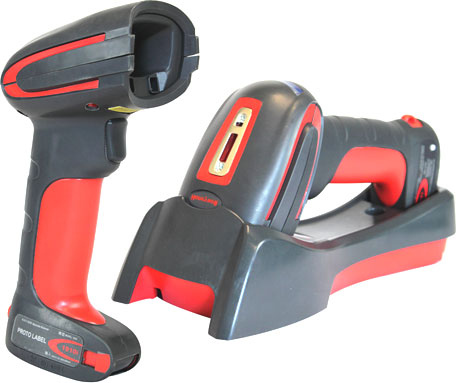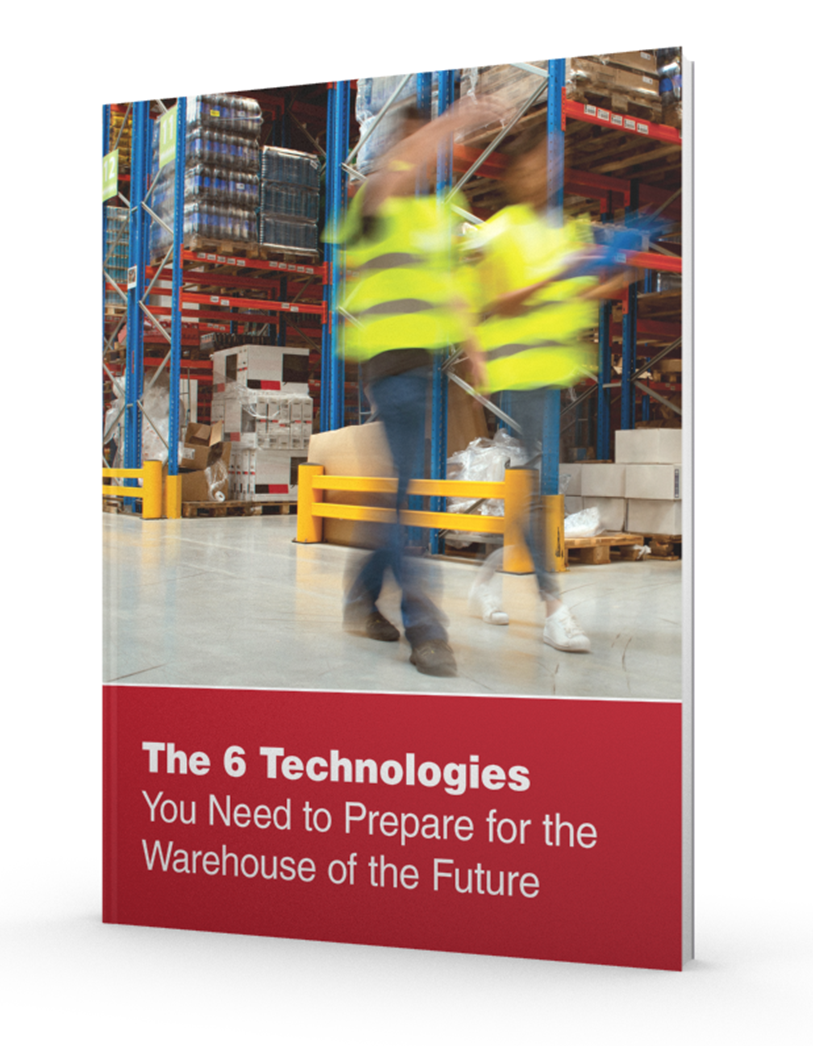The ability to capture data in real time is a core aspect of enterprise mobility, and the most accurate and reliable way to capture data is with barcode scanners. There was a time when all barcode scanners were relatively the same and completed the same tasks, but technological evolution has led to a more varied market in present time; most manufacturers offer an array of imaging and laser scanners that can read 1D or 2D barcodes – or even both. These differences can be even more pronounced for barcode scanners designed for a specific industry, like retail, healthcare, delivery, or warehousing. In order to optimize the efficiency of your facility, consider these four types of barcode scanners:
Handheld Scanners
Handheld scanners are what most people picture when thinking about scanning barcodes, and they tend to be the most common and critical cog in an automatic data collection solution. There are quite a few different types of handheld scanners – wired or wireless, laser or imager, 1D and/or 2D, near or long range – but they all work to improve an employee’s mobility and efficiency.
They are easy to set up and use, and handheld scanners can be integrated with a wide range of applications a business might already have in place. These barcode scanners benefit from the efficiencies of AIDC, but do not require proprietary software to work. These mobile barcode scanners are typically built to withstand the wear and tear of any type of environment, including industrial environments. Honeywell’s Granit 1910i area-imaging scanner has best-in-class durability and was built for scanning-intensive applications, making it ideal for a variety of industries.
Fixed-Mount Scanners
Fixed-mount scanners are frequently leveraged in applications where the user is stationary or moves very little, like retail POS, conveyor lines, shipping/receiving, manufacturing, and more. As the name implies, fixed-mount barcode scanners are mounted to a wall, desk, or other convenient location and items are scanned as they pass by. These scanners are offered in three main configurations: vertical, horizontal, and omni-directional.
One of the better fixed-mount scanners on the market is Honeywell’s Solaris 7820, which is compact enough to work in any enclosure found in high-volume retail environments.
Machine Vision
Machine vision barcode scanners are imaging-based and are ideal for use on an assembly line or conveyor system. These scanners can instantly pull needed information from barcodes or digital images as items pass by. Businesses that do a lot of packaging and label inspecting tend to utilize these barcode scanners.
Verification
Any business that frequently uses barcodes and barcoding technology can benefit from verifiers. Barcode verifiers greatly reduce errors because they ensure that your barcode labels meet your industry’s standards. Failing to keep your barcodes in compliance with regulatory requirements can lead to fines and chargebacks, which can be crippling for some businesses.
In order to succeed in today’s competitive markets, barcoding technology is a must. Although any barcode scanner is better than no barcode scanner, it is important for your business to figure out which kinds of scanners would work best for your processes. Utilizing barcode scanners that maximize the efficiency of each aspect of your business will put your company in its best position to succeed.




